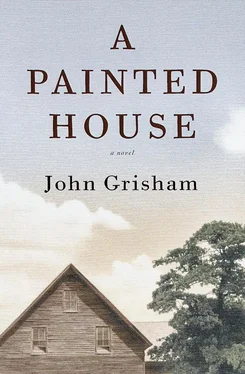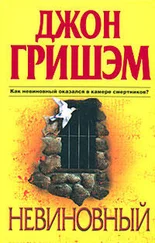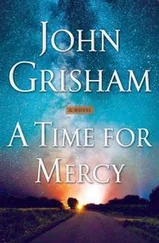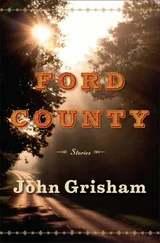I’d never seen the duffel bags. To my knowledge they hadn’t been used since the war. When I walked into the living room early the next morning, they were both half-filled with clothing, and my mother was busy arranging the other necessities to be packed. The sofa was covered with her dresses, quilts, and some shirts she’d pressed the day before. I asked her about the duffel bags, and she told me that they’d spent the last eight years in a storage attic above the toolshed.
“Now hurry and eat breakfast,” she said, folding a towel.
Gran was holding nothing back for our final meal. Eggs, sausage, ham, grits, fried potatoes, baked tomatoes, and biscuits. “It’s a long bus ride,” she said.
“How long?” I asked. I was sitting at the table, waiting for my first cup of coffee. The men were out of the house somewhere.
“Your father said eighteen hours. Heaven knows when you’ll get a good meal again.” She delicately placed the coffee in front of me, then kissed me on the head. For Gran, the only good meal was one cooked in her kitchen with ingredients that came straight off the farm.
The men had already eaten. Gran sat next to me with her coffee and watched as I plowed into the feast she’d laid on the table. We went through the promises again — to write letters, to obey my parents, to read the Bible, to say my prayers, to be diligent so as not to become a Yankee. It was a virtual roll call of commandments. I chewed my food and nodded at the appropriate moments.
She explained that my mother would need help when the new baby arrived. There would be other Arkansas people up there in Flint, good Baptist souls who could be depended on, but I had to help with chores around the house.
“What kind of chores?” I asked with a mouthful of food. I’d thought the notion of chores was confined to the farm. I’d thought I was leaving them behind.
“Just house stuff,” she said, suddenly vague. Gran had never spent a night in a city. She had no idea where we would be living, nor did we. “You just be helpful when the baby gets here,” she said.
“What if it cries like that Latcher baby?” I asked.
“It won’t. No baby has ever cried like that.”
My mother passed through with a load of clothes. Her steps were quick. She’d been dreaming of this day for years. Pappy and Gran and perhaps even my father thought that our leaving was just a temporary departure. To my mother it was a milestone. The day was a turning point not only in her life but especially in mine. She had convinced me at an early age that I would not be a farmer, and in leaving we were cutting ties.
Pappy wandered into the kitchen and poured himself a cup of coffee. He sat in his chair at the end of the table, next to Gran, and watched me eat. He was not good at greetings, and he certainly couldn’t handle farewells. The less said the better in his book.
When I had stuffed myself to the point of being uncomfortable, Pappy and I walked to the front porch. My father was hauling the duffel bags to the truck. He was dressed in starched khaki work pants, a starched white shirt, no overalls. My mother was wearing a pretty Sunday dress. We didn’t want to look like refugees from the cotton fields of Arkansas.
Pappy led me into the front yard, down to a point where second base used to be, and from there we turned and looked at the house. It glowed in the clear morning sun. “Good job, Luke,” he said. “You done a good job.”
“Just wish we’d finished,” I said. To the far right, at the corner where Trot had begun, there was an unpainted section. We’d stretched the last four gallons as far as possible and had come up a little short.
“I figure another half gallon,” Pappy said.
“Yes sir. That’s about right.”
“I’ll get it done this winter,” he said.
“Thanks, Pappy.”
“When y’all come home, it’ll be finished.”
“I’d like that.”
We all converged at the truck, and everyone hugged Gran for the last time. For a second I thought she was going to run through the list of promises again, but she was too choked up. We got ourselves loaded — Pappy behind the wheel, me in the middle, my mother by the window, my father in the back with the duffel bags — and we backed onto the road.
When we pulled away, Gran was sitting on the front steps, wiping her face. My father had told me not to cry, but I couldn’t help it. I clutched my mother’s arm and hid my face.
We stopped in Black Oak. My father had a small matter at the Co-op. I wanted to say good-bye to Pearl. My mother had Libby’s letter to Ricky, which she took to the post office and sent on its way. She and I had discussed it at length, and she, too, felt that it was none of our business. If Libby wanted to write a letter to Ricky and break the news about their baby, we shouldn’t stop her.
Pearl, of course, knew we were leaving. She hugged my neck until I thought it was going to break, then she produced a small paper sack filled with candy. “You’ll need this for the trip,” she said. I gawked at the endless supply of chocolate and mints and jawbreakers in the bag. The trip was already a success. Pop appeared, shook my hand as if I were an adult, and wished me luck.
I hurried back to the truck with my candy and showed it to Pappy, who was still behind the wheel. My parents came back quickly, too. We were not in the mood for a grand send-off. Our leaving was due to frustration and crop failure. We weren’t exactly anxious for the town to know we were fleeing North. It was mid-morning, though, and the town was still quiet.
I watched the fields along the highway to Jonesboro. They were as wet as ours. The road ditches were overflowing with brown water. The creeks and streams were over their banks.
We passed the gravel road where Pappy and I had waited to find hill people. There we had met the Spruills, and I had seen Hank and Tally and Trot for the first time. If another farmer had been there earlier, or if we’d arrived later, then the Spruills would now be back in Eureka Springs with their family intact.
With Cowboy driving, Tally had made this same trip in this same truck in the middle of a storm at night. Running away to a better life up North, just like us. It was still hard to believe she had fled like that.
I didn’t see a single person picking cotton until we reached Nettleton, a small town close to Jonesboro. There the ditches were not as full; the ground wasn’t as wet. Some Mexicans were hard at work.
Traffic slowed us at the edge of the city. I sat up high to take in the sights: the stores and nice homes and clean cars and people walking about. I could not remember my last visit to Jonesboro. When a farm kid made it to the city, he talked about it for a week. If he made it to Memphis, then he might go on for a month.
Pappy became visibly nervous in traffic. He gripped the wheel, hit the brakes, mumbled just under his breath. We turned onto a street, and there was the Greyhound station, a busy place with three shiny buses parked in a row to the left. We stopped at the curb near a DEPARTURES sign and quickly unloaded. Pappy wasn’t much for hugs, so it didn’t take long to say good-bye. But when he pinched my cheek, I saw moisture in his eyes. For that reason he hustled back to the truck and made a hasty getaway. We waved until he was out of sight. My heart ached as I watched his old truck turn the corner and disappear. It was headed back to the farm, back to the floods, back to the Latchers, back to a long winter. But at the same time, I was relieved not to be going back.
We turned and walked into the station. Our adventure was now beginning. My father placed the duffel bags near some seats, then he and I went to the ticket counter.
“I need three tickets to St. Louis,” he said.
Читать дальше












